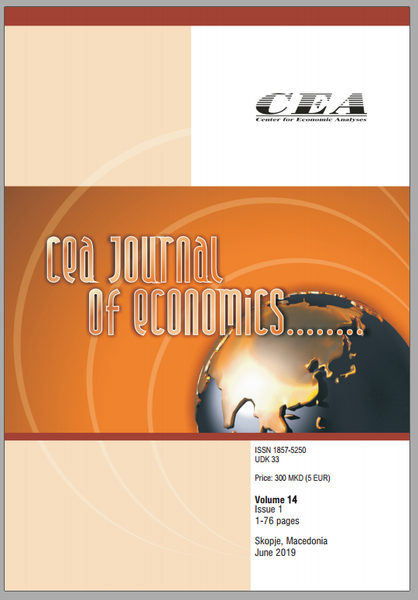SOCIO-ECONOMIC DETERMINANTS OF SOCIAL SPENDING IN THE EU
SOCIO-ECONOMIC DETERMINANTS OF SOCIAL SPENDING IN THE EU
Author(s): Biljana Tashevska, Marija Trpkova-NestorovskaSubject(s): National Economy, Public Finances
Published by: Центарот за економски анализи (ЦЕА)
Keywords: public debt; social expenditures; EU countries
Summary/Abstract: The rise in social spending during the last century brought about a significant increase in the total government expenditures and according to many studies, also contributed to the rising public debt. The intent of social spending is reducing and alleviating inequality and poverty and enhancing social cohesion. Empirical evidence shows that countries that make greater efforts in social spending manage to reduce income inequality. However, it should not be on the account of endangering sustainability In this paper we examine whether certain socioeconomic variables influence the level of social expenditure in the EU countries in the last two decades. More specifically, we try to tackle the following questions: Do governments reduce social spending when debt rises, in order to avoid fiscal unsustainability? Do countries spend more on welfare in times of an economic downturn, i.e. is social expenditure counter-cyclical? Do countries with larger income inequality also have higher social expenditures aimed at reducing the larger gap?
Journal: CEA Journal of Economics
- Issue Year: 14/2019
- Issue No: 1
- Page Range: 35-47
- Page Count: 13
- Language: English

